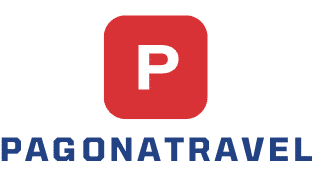In the rapidly changing world of technology, and amidst rising consumer demands for transparency and safety in the food supply chain, the UK’s food industry is poised for a revolution. Blockchain technology is heralded as the catalyst for this impending transformation. But, how does this work exactly? In this article, you will delve into the world of blockchain and discover how it can streamline the UK’s food traceability systems.
The Rise of Blockchain Technology in the Food Supply Chain
Blockchain technology has made its way into numerous industries, and the food sector is no exception. With its promise of enhanced transparency, data accuracy, and system efficiency, it’s no wonder that this technology has caught the interest of food businesses and consumers alike.
Also read : How Can AI Personal Assistants Enhance Time Management for UK Professionals?
This section aims to give you a brief overview of what blockchain technology is, how it works, and its potential benefits in the food supply chain.
Blockchain is a type of distributed ledger technology. It’s like a decentralised database where data is stored in ‘blocks’ that are ‘chained’ together. Each block contains information about transactions, and any changes made to this information are recorded and visible to all participants in the network. This provides a high level of transparency and data integrity, making it difficult for anyone to tamper with the information.
In parallel : How to create a chatbot without coding using Botnation?
In the context of the food supply chain, blockchain technology can record all transactions and events that a food product undergoes, from farm to fork. This includes information about where the food was grown, who handled it, how it was transported, stored, and processed, its safety and quality checks, and more. Consumers can access this data using a unique code attached to the product, giving them a thorough understanding of the product’s history and fostering trust in the food they consume.
The Role of Supply Chain Traceability
The traceability of food products is a crucial aspect of the supply chain. It aids in ensuring food safety, verifying claims about a product, and responding effectively to food recalls.
In the current system, data about a food product is often fragmented and difficult to access. Information lies in silos within different stages of the chain, and tracing a product back to its source can be a time-consuming and complex process. This lack of transparency and inefficiency can lead to food fraud, health risks, and a loss of consumer trust.
However, with blockchain, each transaction or event related to a food product is recorded on a shared, immutable ledger. All parties involved in the chain can view and verify this data. This can significantly enhance the traceability of food products, enabling quick and accurate trace-backs in case of issues like food recalls. It can also deter food fraud, as all actions are visible and accountable.
Google’s Blockchain-Based Supply Chain System
Even tech giants such as Google have recognised the potential of blockchain in revolutionising the food supply chain. Google Cloud recently introduced a blockchain-based system for supply chain traceability.
This system uses blockchain technology to track the movement and condition of food products throughout the supply chain. It integrates with other technologies like IoT (Internet of Things) devices and AI (Artificial Intelligence) for data collection and analysis. The system also uses a user-friendly interface that allows consumers to scan a product’s QR code and access its complete history.
Such a system can greatly enhance the transparency and traceability in the food supply chain. It can provide consumers with detailed information about a product, such as its origin, handling processes, safety checks, and more. This can foster consumer trust and promote informed buying decisions.
The Future of Blockchain in the UK’s Food Industry
The implementation of blockchain in the UK’s food industry is still in its early stages, but its future looks promising. Companies are beginning to explore the benefits of blockchain for supply chain management, and consumers are becoming more aware of its potential for ensuring food transparency and safety.
However, the widespread adoption of blockchain in the food industry will not happen overnight. It requires collaboration and agreement among various stakeholders, including food producers, processors, retailers, regulatory bodies, and consumers. It also requires investment in technology and training.
Yet, the benefits of blockchain technology for the food industry are clear. With its potential to streamline traceability systems, enhance data integrity, and foster consumer trust, blockchain could well be the transformative technology that the UK’s food industry needs.
The Impact of Blockchain on Food Fraud and Safety
In a world where consumers are becoming increasingly concerned about the quality, safety, and ethical implications of the food they consume, food fraud and safety issues are of paramount importance. Blockchain technology comes into play as a powerful tool against these problems.
Food fraud, which includes the dilution, substitution, tampering, or misrepresentation of food, is a widespread issue that costs the global food industry an estimated $40 billion every year. It not only affects businesses financially, but can also be a serious public health risk. Traditional traceability systems, with their fragmented and opaque data, often fail to effectively prevent or detect food fraud.
Blockchain technology, with its characteristics of transparency, immutability, and decentralization, can be a game-changer in the fight against food fraud. By recording every transaction or event related to a food product on a shared ledger, blockchain can enable real-time verification of food authenticity and safety.
For instance, if a food product is claimed to be organic, the blockchain-based traceability system can provide evidence of its entire journey from farm to fork. Each party involved in the supply chain – from farmers, processors, and retailers, to consumers and regulators – can access and verify this data, thereby ensuring the product’s authenticity and safety.
Furthermore, in case of a food safety incident, blockchain can enable quick and precise trace-backs, thereby minimizing the impact of the incident. Blockchain essentially shifts the focus from reactive responses to preventive measures, enhancing the overall safety of the food supply chain.
Conclusion: The Case for Blockchain in the UK’s Food Traceability Systems
To sum up, blockchain technology holds significant potential to streamline the UK’s food traceability systems. It can enhance transparency and data integrity, improve efficiency, and foster consumer trust. With the ability to track and verify the journey of a food product from farm to fork, blockchain can greatly reduce the risk of food fraud and improve food safety.
However, realizing this potential is not without challenges. It requires close collaboration among all stakeholders in the food supply chain, substantial investment in technology and training, and a regulatory framework that supports the adoption of blockchain.
Google’s blockchain-based supply chain system serves as a promising example of how this technology can be integrated into the food industry. It shows that with the right tools and commitment, blockchain can revolutionize the way we track and verify our food.
Looking ahead, as more companies explore the benefits of blockchain and consumers become more aware of its potential, the adoption of this technology in the UK’s food industry is likely to accelerate. As a result, we will move closer to a future where consumers can trust the food they consume, businesses can protect their brands and bottom lines, and regulators can ensure the safety and integrity of the food supply chain.











